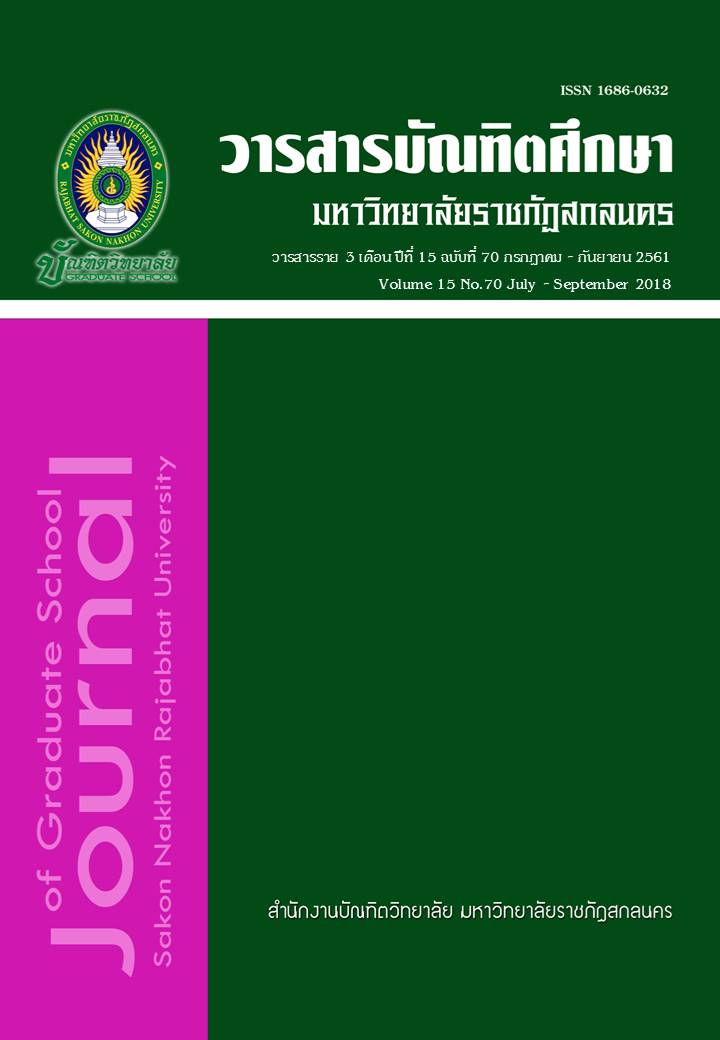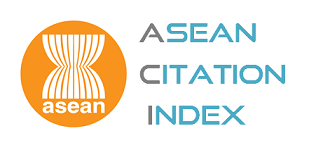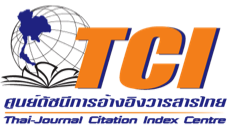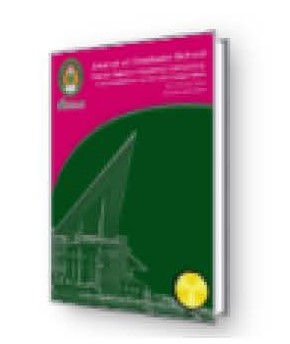การเปรียบเทียบผลสัมฤทธิ์ทางการเรียนและการคิดแก้ปัญหา โดยใช้กิจกรรม การเรียนรู้แบบโครงงานกับการจัดกิจกรรมการเรียนรู้แบบกลุ่มร่วมมือ
Keywords:
การเปรียบเทียบผลสัมฤทธิ์ทางการเรียนAbstract
The objectives of this research were to 1) develop learning activity management plans of the 5th learning unit of Economics subject on the topic Sufficiency Economy Philosophy for Mathayomsuksa 1 students using project-based approach and student teams achievement divisions (STAD) approach to reach the effectiveness criterion at 80/80, 2) figure out the effectiveness index of these learning activity management plans, 3) compare the learning achievement of Mathayomsuksa 1 students between learning with project-based approach and STAD approach; 4) compare the problem solving thinking of Mathayomsuksa 1 students between learning with project-based approach and STAD approach, and 5) study the satisfaction of Mathayomsuksa 1 students after learning through project-based approach and STAD approach.
Sampling group of this research, selected by cluster sampling method, consisted of 100 Mathayomsuksa 1 students from 2 classrooms (50 students from M.1/10 and 50 students from M.1/11) at Anukoolnaree School in Muang district, Kalasin province under the Office of Secondary Educational Service Area 24, during the second semester of academic year 2014. Research instruments included; 15 learning activity management plans based on project-based approach (for M.1/10), 15 learning activity management plans based on STAD approach (for M.1/11), learning achievement test on the topic Sufficiency Economy Philosophy which consisted of 30 objective questions-4 possible answers (with index of consistency between 0.60-1.00, discrimination (B) from 0.23 to 0.63, and reliability (r) at 0.86), measurement test for problem solving thinking on the topic Sufficiency Economy Philosophy which consisted of 2 items (with index of consistency between 0.60-1.00, discrimination (B) from 0.41 to 0.75, and reliability (r) at 0.72). Data analysis was made through mean, percentage, standard deviation, and t- test (dependent samples).
The findings were as follows :
1. The effectiveness of developing learning activity management plans on the topic Sufficiency Economy Philosophy under the 5th learning unit of Economics subject for Mathayomsuksa 1 students using project-based approach indicated 85.53/82.87 while the 83.69/81.40 was found with STAD approach.
2. The effectiveness index of learning activity management plans of project-based approach and STAD approach was 0.5214 and 0.5088 respectively. These could refer to the increase of study progress of students at 52.14% and 50.88%.
3. Learning achievements of students after learning through project-based approach and STAD approach were not different.
4. Scores of students’ problem solving thinking between learning through project-based approach and STAD approach were different with statistical significance at .05 level.
5. Overview of students’ satisfaction towards learning through project-based approach and STAD approach indicated the highest level of satisfaction.
Downloads
Published
How to Cite
Issue
Section
License
บทความทุกบทความที่ตีพิมพ์ในวารสารบัณฑิตศึกษา มหาวิทยาลัยราชภัฏสกลนคร ถือว่าเป็นลิขสิทธิ์ของบัณฑิตวิทยาลัย มหาวิทยาลัยราชภัฏสกลนคร










